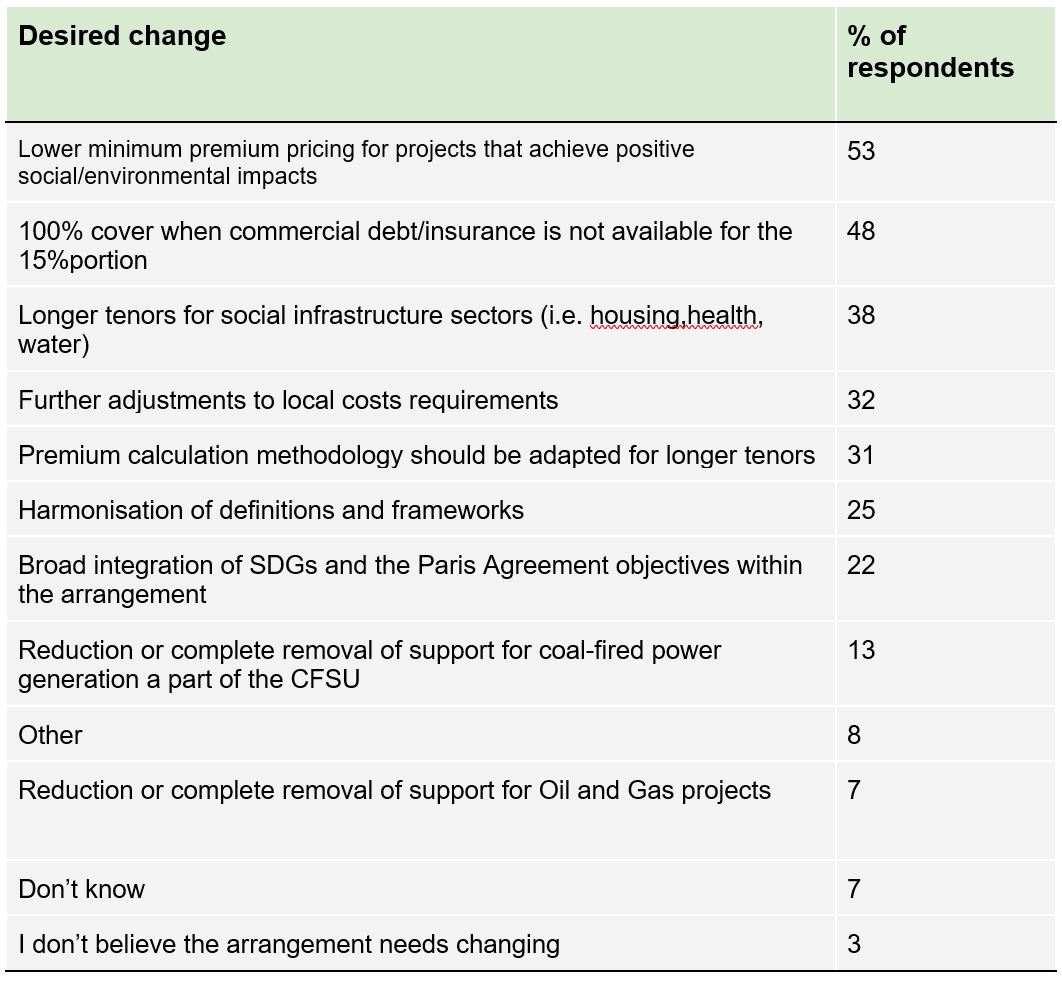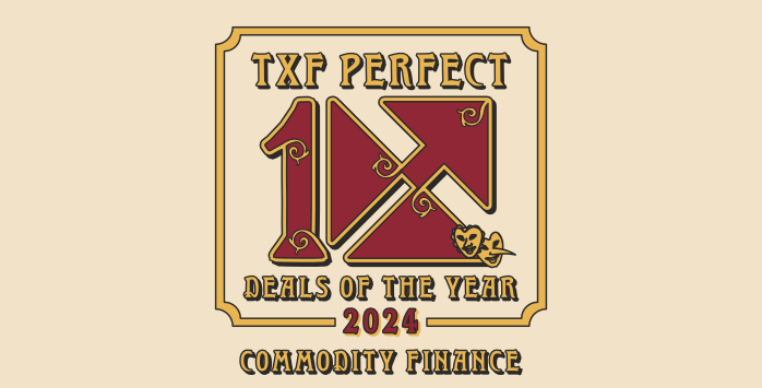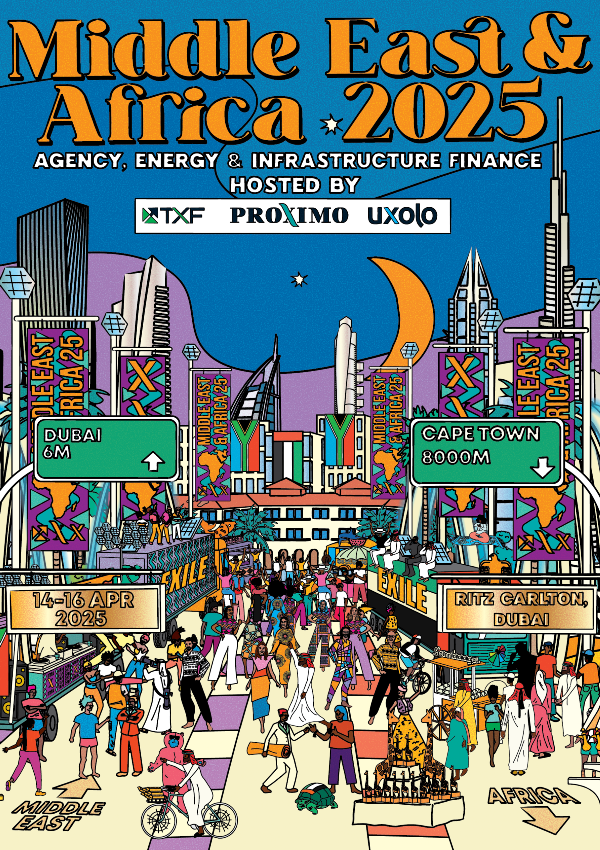Market calls for change: cut the minimum OECD premium for ESG projects
Lower minimum premium pricing for social/environmental projects is the most needed change to the OECD arrangement according to TXF's annual Export Finance Industry Survey.

Results from TXF's annual Export Finance Industry Survey indicate the market remains broadly unsatisfied with the OECD Arrangement in its current construction, with lower minimum premium pricing for projects that achieve positive social/environmental impacts high on the wish list of many.
Just over half of all respondents to this year's TXF's annual Export Finance Industry Survey stated that lower minimum premium pricing for projects that achieve positive measurable social and/or environmental impacts was the change they’d most like to see made to the OECD Arrangement. 100% cover when commercial debt/insurance is not available for the 15% portion was the second most requested change, followed by longer tenors for social infrastructure sectors. Only 3% of all respondents did not believe the Arrangement needed changing.
With a record 29 banks, 18 ECAs and hundreds of exporters and importers taking part, the figures presented here should be seen as a reliable indicator of sentiment across the export finance industry. Source: TXF Research
These results coincide with a statement released following a meeting of EU finance ministers on Tuesday, which called on the OECD Arrangement to include “financial mechanisms to incentivise environmentally sustainable projects; for example lower down payments, longer maturities, or a specific risk-based adjustment to premia”. The statement forms part of a wider call by the European Commission, which looks to set “science-based deadlines for ending officially supported export credits to fossil fuel energy sector projects”.
The push to promote financial mechanisms to incentivise environmentally and socially sustainable projects comes amidst the ongoing war in Ukraine, the fallout from which has included heavy sanctions on the Russian economy and heightened concerns over European reliance on Russian energy imports. Greater support under the Arrangement for sustainable deals, both social and environmental, it is hoped, wil help European ECAs compete with non-OECD countries, who in recent years have increasingly challenged OECD financing.
Finalised in 1978, the Organisation for Economic Cooperation and Development (OECD) Consensus on export credits, known officially as the ‘Arrangement on Officially Supported Export Credits’, is a “gentlemen's agreement” that was established as a framework to stop OECD member countries gaining advantage over each other on the price of export credits. But countries not party to the agreement are free to provide export support as they wish, which the OECD members say create an unequal playing field dictated by economic might.
The last change to the Arrangement was made in In April of 2021, when the OECD announced that it would raise the limit on the amount of local content in a project that may be covered by ECAs. The much welcomed amendment stated that the proportion of products and services produced outside the buyer’s country which can be covered by an ECA would be increased to 40% if the buyer is located in a high-income country, and 50% if they are located in a low-to-medium income nation.
The survey results show that these changes were warmly welcomed, with respondents reporting that these changes were either somewhat helpful (57%) or incredibly helpful (28%). Only 15% of respondents stated that they did not think this rule change was helpful to them.
However it's clear that the market more broadly remains unsatisfied with the Arrangement in its current construction, with the Arrangement getting an average satisfaction rating of 3 out of 5. Importers were the most satisfied with the Arrangement giving an average score of 3.5 out of 5, followed by exporters (3.4), ECAs (3.1), with banks as the least satisfied with an average reported score of 3.
Acknowledging reform is needed and implementing that reform has been, and remains, an arduous process at the OECD level, so much so that the European Council says, the EU may break from the Arrangement and bring about independent reforms in order to maintain European competitiveness. Indeed, the European Council statement expresses a “willingness, in case the pace of progress between participants on the modernisation would not be satisfactory, to look into the possibilities of refocusing on European strategic and industrial interests and the best way to serve them autonomously”.
The shockwaves of the war in Ukraine, lingering ripples from COP-26 and the ICC white paper could hasten the pace of change, however for the time being it looks as though ECAs will continue playing on uneven ground.






